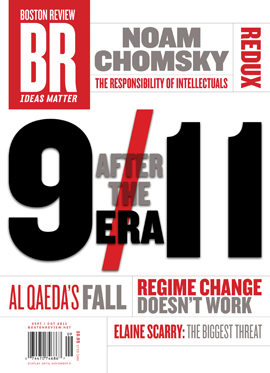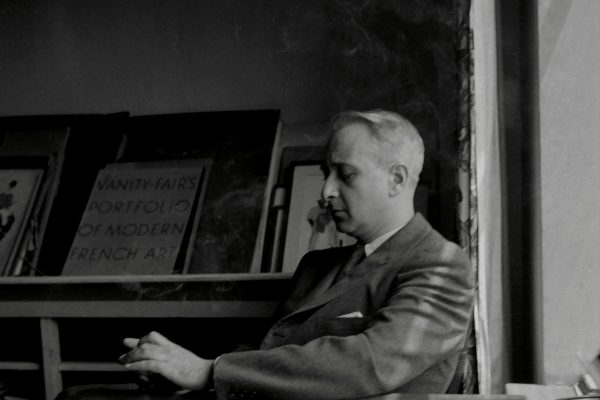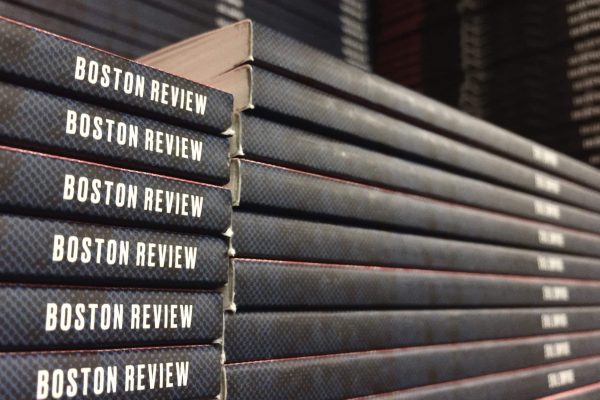 Back in 1991 when Josh first took on Boston Review, he was inspired by Noam Chomsky’s important 1967 essay, “The Responsibility of Intellectuals.” With no experience in magazine publishing, but a vision for what BR could be, Josh acquired the failing nonprofit, at no cost. Boston Review, he hoped, would be a place where reasoned argument could be brought to bear on the realities of politics and power, all in service of democracy’s promise. Twenty years later, we hope you agree that it is.
Back in 1991 when Josh first took on Boston Review, he was inspired by Noam Chomsky’s important 1967 essay, “The Responsibility of Intellectuals.” With no experience in magazine publishing, but a vision for what BR could be, Josh acquired the failing nonprofit, at no cost. Boston Review, he hoped, would be a place where reasoned argument could be brought to bear on the realities of politics and power, all in service of democracy’s promise. Twenty years later, we hope you agree that it is.In this issue of BR, Chomsky revisits the theme of that inspiring essay. As he explains here, he wrote the original to address “the deceit and distortion surrounding the American invasion of Vietnam.” Chomsky argued that those of us who live in relative safety and comfort are in a position to tell the truth about the U.S. role in world affairs. The same standards hold today. Once more, Chomsky urges the privileged among us to use our status “to speak the truth and to expose lies.”
This issue marks BR’s twentieth year under Josh’s editorship (Deb joined in 2002). It also comes on the tenth anniversary of 9/11. So it is an occasion not only to revisit our mission, but also to mourn the victims of al Qaeda’s murderous attack. The passage of time cannot diminish the grief, the sense of loss felt by victims’ families and loved ones. Nor should that passage diminish the resolve to prevent such attacks in the future. We cannot relieve the losses, and should not change the resolve.
But some things can and should change. The 9/11-era—now a decade long—has seen two long wars and a third, just begun; an unprecedented expansion of executive power; inexcusable departures from legal and moral norms that condemn torture and protect basic human rights; and a depressing deterioration of American public discourse.
In our forum on regime change, contributors debate the use of U.S. power in the world: what kind of foreign policy might best reduce the threat of terrorism, and how should we support a more democratic world? In “End of the Road,” Fawaz Gerges argues that the risk of a catastrophic al Qaeda attack has greatly diminished and that fear of such attack should not animate our foreign policy. Finally, Elaine Scarry, in “Extreme Injury,” reminds us of a grave threat that the war on terrorism has obscured: the continuing presence of nuclear weapons at home and abroad. As Joanne Landy stresses in our forum, without a fundamentally new approach to our own nuclear arsenal and to the aspirations of people throughout the world, “We are all in danger.”








